Canada is a huge country. The easiest and most flexible way to explore it is by car.
This post will share how to buy a car in Canada, aimed specifically at long-term visitors and temporary residents.
First, I’ll try and break down the process, share my own experiences and finish with a frequently asked questions section.
Updated February 2024
This post includes affiliate links. If you make a qualifying purchase through one of these links, I may receive a small percentage of the sale at no extra cost to you.
How to buy a car in Canada
Buying a car in Canada is cost-effective for long-term visitors and temporary residents, although it can be tricky to navigate through the process.
The main reason why? Everything vehicle-related is managed provincially in Canada.
This means that the process to buy a car is different in Newfoundland compared to Alberta. And then different again in British Columbia compared to Ontario. And so on!
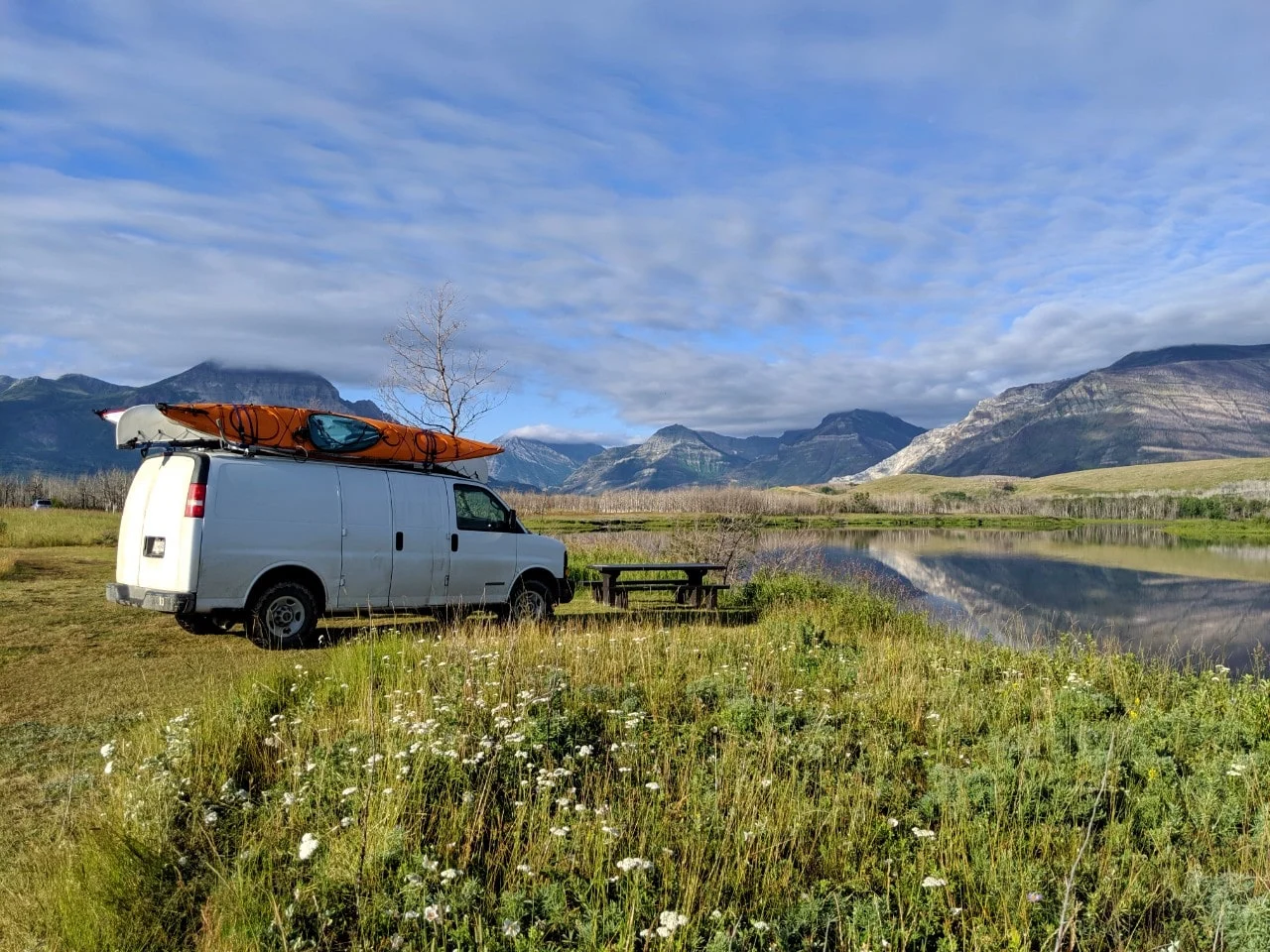
Quick overview of the process of buying a car in Canada:
- Before arriving in Canada, research the insurance/licensing rules in the province where you intend to register a vehicle
- If applicable, get a letter from previous insurers as needed to prove driving experience and/or lower insurance premiums in Canada
Once in the country, the next steps are:
- Swap driver’s license soon after arrival as per provincial rules
- Search for vehicle
- Buy insurance
- Register the vehicle
Depending on the province, steps 3 and 4 may be reversed. In British Columbia and Saskatchewan, steps 3 and 4 are completed at the same time, via a provincial government corporation.
Why buy a car in Canada?
If you’re not living in a big city in Canada, then a car can be a very, very useful thing to have.
In the 10+ years we have lived in Canada, every place (Comox Valley, Fort St John, Penticton, Tracadie) has had limited public transportation.
In many towns, public transport does exist but it is often neither particularly extensive nor convenient especially if you want to explore outside of towns and cities.
We like to go on remote hiking and paddling trips often and having a car makes this very easy for us. Doing so via public transport would be very tricky if not impossible.
If you are planning to live in one of the bigger urban areas (e.g. Vancouver, Calgary, Toronto) for the entirety of your stay, I wouldn’t worry too much about buying a car in Canada.
The bigger cities have car-sharing programs (such as Zipcar) that are very popular and perfect for when you want a weekend out of the city.
If you’re planning to live outside the main cities or want to travel around Canada after a long stint of work, I would say that a car is almost essential.
Renting a vehicle is possible but for the long term (over 4 weeks), purchasing a vehicle would almost always be cheaper.

Driving conditions in Canada
Outside of cities, Canadian roads are pretty quiet and straight (making for easy driving), though there can be a few quirks here and there such as:
- Unique one-way systems
- Four-way junctions, where the first vehicle to stop is the first one to go
- Roundabouts, which are not usually used efficiently
- Turning right on a red light (generally allowed unless there is a specific sign prohibiting it at a junction or a local restriction)
- The risk of large animals on the road
The latter includes animals such as deer, elk and moose as well as bears, porcupines, skunks are more. They can cause a lot of damage to a vehicle if hit. Animals are most commonly seen at dawn and dusk.
The biggest difference for some newcomers to Canada (those coming from the UK, Australia and New Zealand) is driving on the ‘right’ side of the road.
It is surprisingly easy to get used to driving on the right-hand side, however, mainly due to Canadian cars being left-hand drive and mostly automatic.
Navigation, in general, is easy outside of the cities due to Canada having few main highways.
Within cities, I like to use downloaded Google Maps to navigate. Beyond civilisation, we use the excellent Backroad Mapbooks series for navigation.
Not just useful for directions, Backroad Mapbooks also show places to visit, hiking trails and free places to camp.
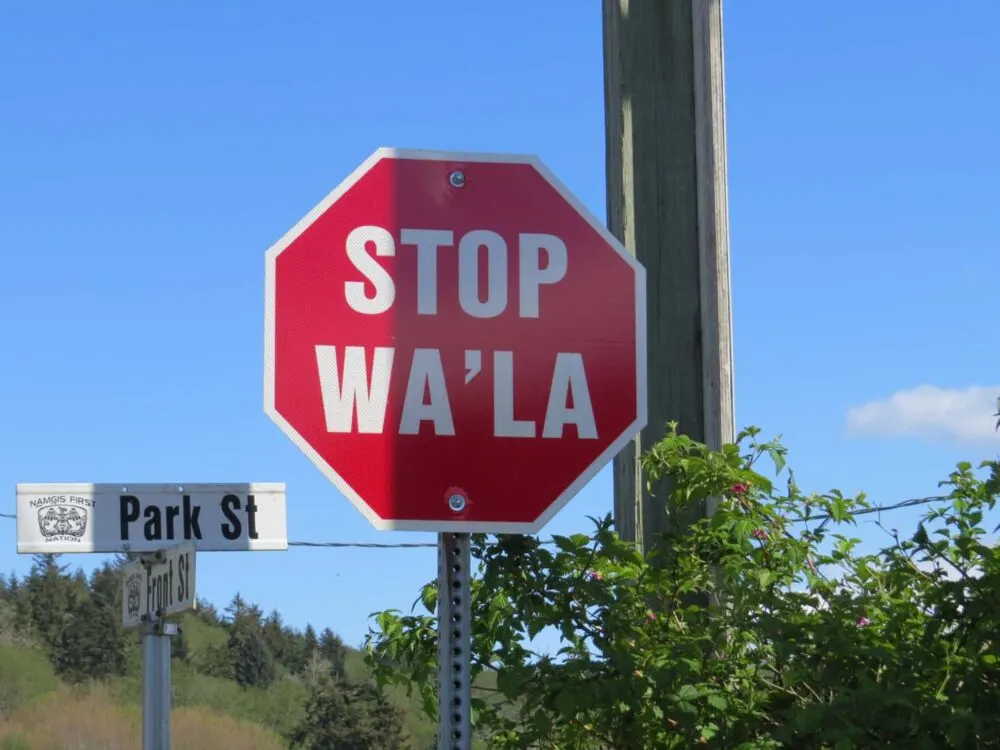
Canadian drivers licenses
Driver’s licenses are issued provincially. New residents need to exchange their home driver’s license for a local one.
Each province/territory has various reciprocal agreements with countries to facilitate exchanges for the equivalent license class.
If a province/territory does not have a reciprocal agreement with the country where your license was issued, a written and practical test may be needed to complete the exchange.
When exchanging, your ‘home’ license will be taken away and sent back to the foreign licensing authority. Your new Canadian license will usually only be valid for as long as your work permit.
International Driving Permits
An International Driving Permit is a translation of your driver’s license. It has no real validity unless it is presented alongside a valid driver’s license.
Time limits for foreign license exchange
The standard rule is that foreign licenses must be swapped for a local provincial one after a certain amount of time, dependent on the province/territory.
It’s a similar requirement if you move provinces.
Depending on the province, you may need to show your work permit, proof of residency (utility bill etc.) and/or driving history to be able to complete the exchange.
Driver’s license deadlines and requirements for each province and territory in Canada:
- Alberta – within 90 days
- British Columbia – within 90 days
- Manitoba – within 3 months
- New Brunswick – “as soon as [you] take up residence”
- Newfoundland and Labrador – within 3 months
- Northwest Territories – within 30 days
- Nova Scotia – within 90 days
- Nunavut – within 30 days
- Ontario – within 60 days
- Prince Edward Island – within 4 months
- Quebec – within 6 months
- Saskatchewan – within 90 days
- Yukon Territory – within 120 days

Changing your license in British Columbia
I have personal experience of changing my British license to a British Columbia one when I first moved to Canada. New residents to British Columbia have 90 days to switch their home licenses.
It is straightforward to get a BC license if you have at least two years of driving experience and are from one of the countries that have a reciprocal deal with the province.
New drivers with less than two years of experience are only eligible for a graduated license that has driving restrictions.
If your driver’s license does not indicate how long you have held it (either directly on the license or a counterpart), you will need proof from your home country to show your driving experience.
To swap a driver’s license in British Columbia –
- Bring your passport, work permit and home country license to any ICBC driver licensing office
- An eye test will usually be done on the spot. Your home license will be suspended and a fee has to be paid
- They will record your height/weight/eye colour on the license, despite having a photograph, so be prepared to be asked!
- Finally, they will ask a few questions about driving in British Columbia. My questions concerned why drivers should be careful around motorcyclists and what should do when a school bus stops and all the lights flash (stop, don’t overtake)
- The last step is to take a new license photo there and then. A temporary license is given and the actual one is posted to you within a few weeks
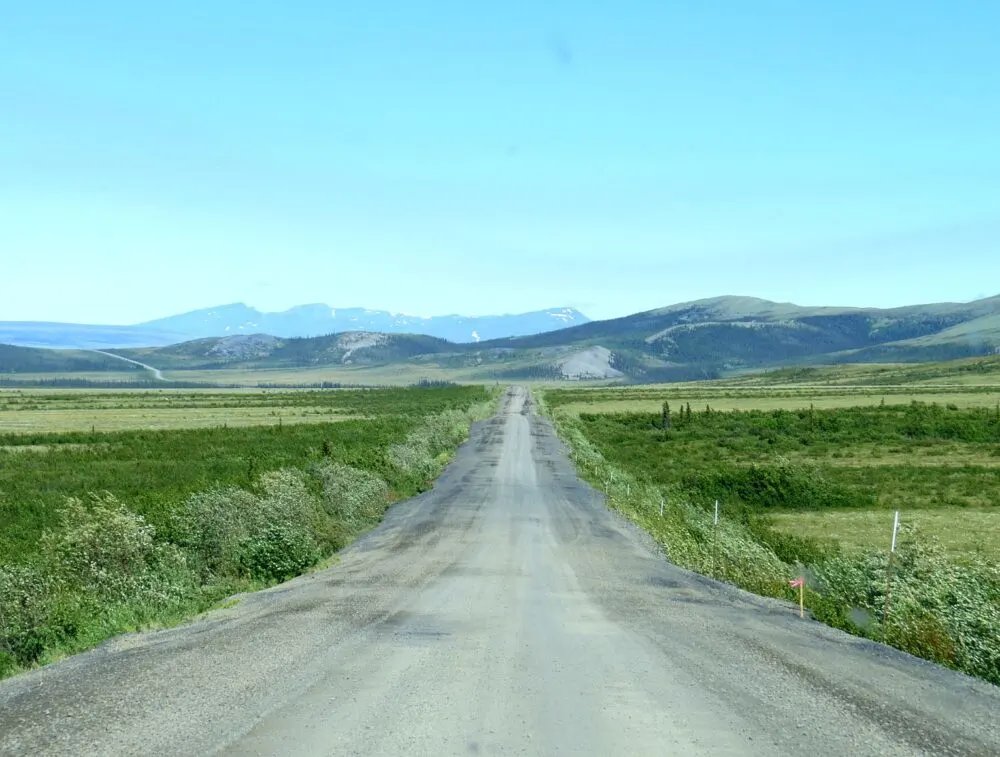
Exchanging driver licenses between provinces in Canada
If you are just visiting a province or territory for a certain period (usually six months), it is not necessary to swap to a local license.
So if you have an Albertan license and decided to travel around BC and Yukon for the summer, a swap wouldn’t be needed. It is a good idea to check your insurance is valid too, though.
If you do decide to move to a different province (looking for work and renting a place are example indicators of moving), the process is almost the same as swapping licenses from a different country.
British Columbia to New Brunswick and then back to BC again
A few years ago, JR and I moved to New Brunswick for a year and changed our licenses. We were asked to prove our right of residence in Canada (PR card for me) and also New Brunswick (utility bill) as well as my identity (photo ID)
Finally, I had to pay the application fee ($90 at that time) and have a new photo taken. To be able to buy vehicle insurance in New Brunswick, we had to get our BC licenses swapped first.
A year later, we did everything in reverse and had to pay to swap our licenses back to BC.
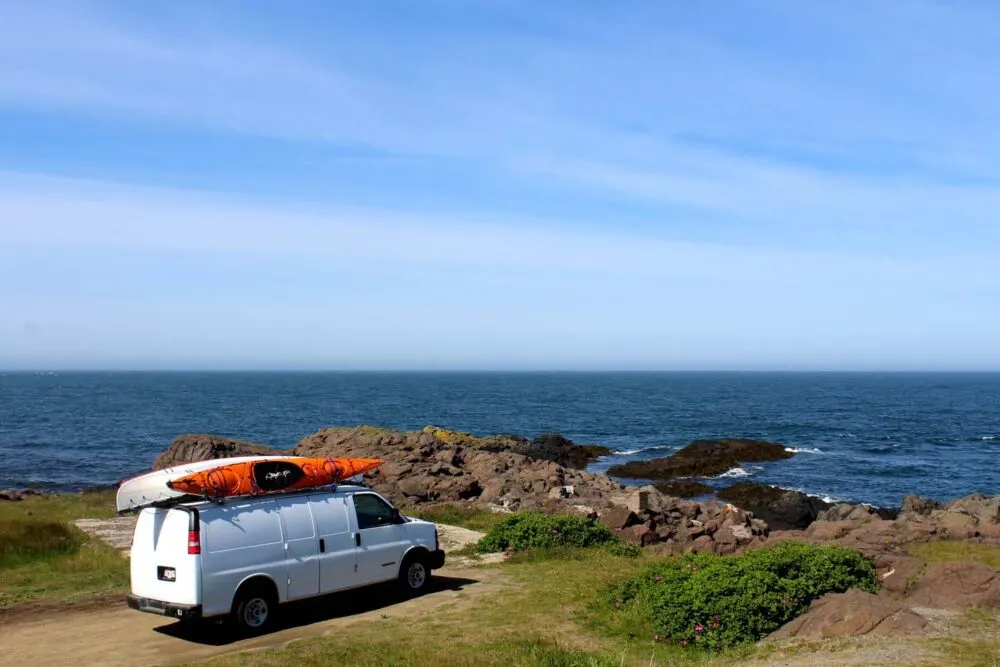
Buying a car in Canada
The ease of buying a car in Canada varies throughout the country but there is a large second-hand car market everywhere.
This is especially true in provinces such as British Columbia where there is no annual roadworthiness test for vehicles.
I would strongly recommend buying a car in Canada if you can. The freedom that a vehicle offers in this huge country is amazing!
One important thing to keep in mind is that second-hand car prices have increased over the last few years.
Our experience buying cars in British Canada
10+ years after moving to Canada, we have owned exactly six vehicles:
- A 1997 Plymouth Voyager – purchased for $600 in 2011 and sold for $700 in 2012
- A 1995 Chevrolet Astro van – purchased for $1000 in 2012 and sold for $1200 in 2017
- A 1997 VW Polo – purchased for $600 in 2013 and sold for $600 three months later
- A 1992 Ford Explorer – purchased for $1000 in 2017 and sold for $500 three months later
- A 2005 GMC Savana van – purchased for $9000 in June 2017 (our current vehicle)
- A 2005 Toyota Echo (the same as the Yaris) – purchased for $3000 in November 2021 (our second vehicle)
Searching for a car to buy in Canada
In my experience, most people living temporarily in Canada tend to either head for the major cities (mainly Toronto and Vancouver, sometimes Ottawa, Montreal, Edmonton or Calgary) or the ski resort areas (Whistler, Banff, Jasper, Big White).
Those living in cities will have no trouble buying a car in Canada using either Craigslist or Kijiji (whichever is most used locally), looking in local papers and keeping an eye out for physical ‘for sale’ signs on cars.
There may even be adverts on hostel notice boards in the main arrival/departure cities (Toronto and Vancouver).
If you’re planning to live in a ski resort area over winter then it’s likely you won’t need a car.
If you decide you want one, then I’d advise you to buy it before you leave a big city to go there. There will likely be fewer choices and higher prices in the resort area.
A note about buying campervans and RVs
RVs (motorhomes) are hugely popular in Canada; it sometimes feels like almost everyone has one in rural areas!
Home-converted campervans have become much more popular over the last 5 years with the #vanlife movement.
Compared to when we first moved to Canada in 2011, reasonably priced mid-sized vans (from the Astro upwards) are harder to find than they used to.
On the other hand, pre-converted vans are easier to source! They often come with all the camping necessities from camp chairs and stoves to food storage and more.

Choosing a car to buy in Canada
In some provinces, there is less risk when buying a car.
British Columbia, for example, does not require drivers to submit their vehicle to an annual roadworthiness test and hence research can initially only be on the condition of the vehicle, age, mileage and how it feels to drive.
In this case, bring a friend along for a second opinion if possible and consider paying for a mechanical check at a garage.
Out-of-province vehicles
One important thing to mention here is the issue of buying a vehicle that is registered in a different province than the one you are in. This means the owner has moved provinces and brought their vehicle with them.
Check the license plates of the vehicle you are intending to purchase. To register an out-of-province vehicle in the ‘new’ province, it has to pass an official inspection. The cost (and risk!) for this is usually on the purchaser.
Having transferred our vehicle from BC to New Brunswick and then back to BC within two years….my recommendation is to avoid buying an out-of-province vehicle if you possibly can.
Not only did we have to spend money getting some cosmetic problems fixed, but we also had to pay a surprising amount of admin and processing fees.
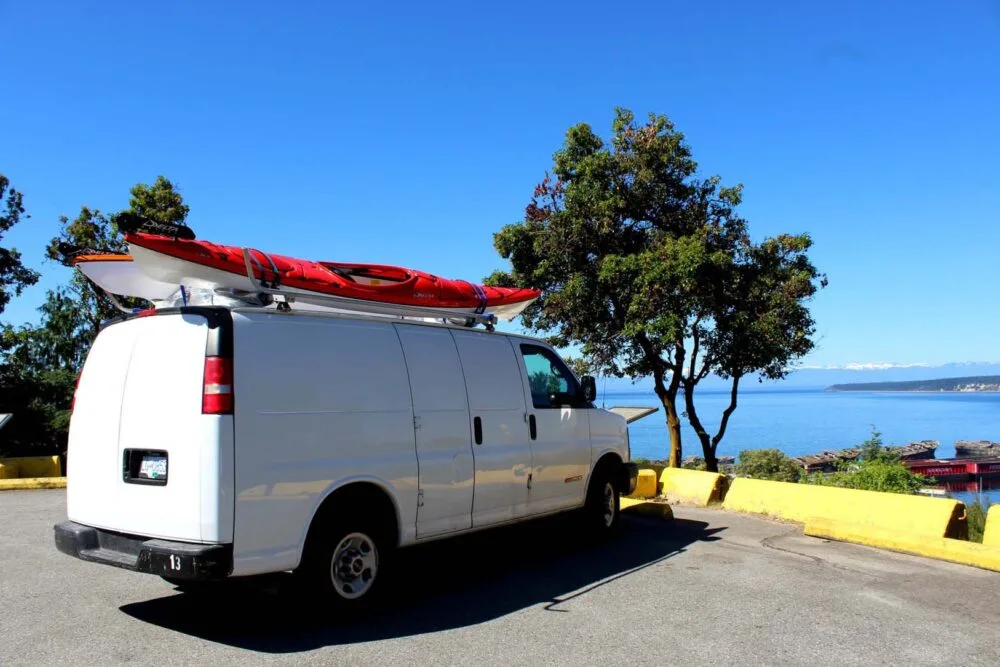
Registering a car in Canada
When you’ve decided which car to purchase, it’s time to register the car in your name and also insure it. When registering your first vehicle in Canada, you will need to purchase license plates at the same time.
If you later sell the vehicle and buy another, you would put these same plates on your new vehicle unless it is in a different category (i.e. car, large van, truck etc) or you move provinces.
Like driver’s licenses, both registration and vehicle insurance are organised provincially. For this reason, cost and procedure vary significantly between provinces.
To my knowledge, registration is always completed with the provincial government (Service Alberta, Service New Brunswick et al) and insurance coverage is purchased from private companies except for British Columbia and Saskatchewan.
New Brunswick
In New Brunswick, we had to buy insurance for our vehicle first and then register it at Service New Brunswick.
British Columbia
Over in British Columbia, things are done a little differently.
Vehicle registration and insurance are both controlled by a government corporation called ICBC.
For this reason, registration and insurance are purchased at the same time.
How to buy car insurance in Canada
It is mandatory to have at least third-party insurance when buying a car in Canada.
The price of insurance depends on so many factors that it would be impossible for me to give any kind of ballpark here. This post has a good overview.
One of the most important factors will be the province you live in. Quebec is widely known to have the cheapest car insurance premiums in Canada, for example.
Besides that, it is also your location within that province (coverage for cities is generally higher), type of vehicle, usage of vehicle, age of driver, experience of driver etc.
An insurance broker is usually a good place to start when buying car insurance in Canada.
It is possible to get a higher no-claims discount if you can prove your driving history in another country or province.
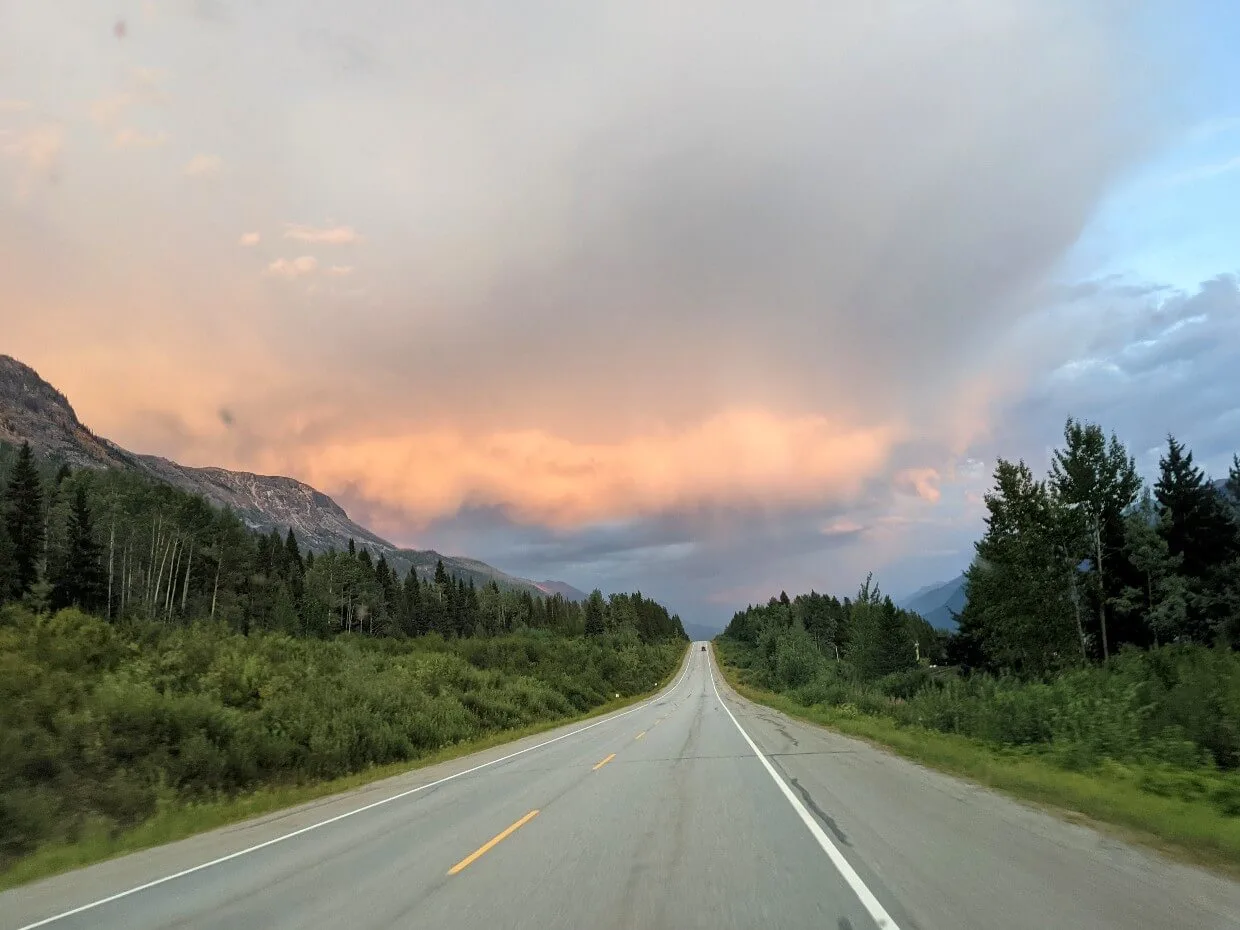
Insuring a car in British Columbia
As mentioned, buying insurance in British Columbia is different. While you are registering your car in BC, you will buy insurance at the same time.
Everyone must have basic insurance with the provincial insurance provider ICBC and then you can add additional or comprehensive coverage on top from either ICBC or a private insurer.
Before 2021, BC used to be one of the most expensive provinces for insurance. After significant restructuring within the insurance system, BC is now one of the cheapest places to buy insurance.
How to buy a car in Canada: FAQs
It depends on the province. For example, we couldn’t buy insurance in New Brunswick without having a New Brunswick license. In British Columbia, foreign licenses are accepted but insurance is automatically more expensive
Yes, you must be able to provide a local address (within the province) to register and insure a vehicle. A separate mailing address is usually OK.
When applying for a driver’s license, you’ll only be given a paper version immediately and the card will be mailed within 2-3 weeks. For insurance purposes, you have to supply an address where the vehicle will usually be ‘residing’ (that is, parked when not in use).
You still need an address to initially register and insure the vehicle. Having experienced this issue myself, I can tell you that it is one of the more frustrating aspects of travelling in a van long term.
For insurance and registration, not usually. For the license, it depends on the province. For example, BC does not ask for proof but New Brunswick requires it.
If you are only travelling through and not moving to a province (to find work, rent a house etc) it is not necessary to transfer your vehicle over each time you cross a border. You should, however, check your insurance policy for any relevant time limits on travel.
Most Canadian insurance policies will include driving in the USA too. But you should always check first.
You must update the address on your license and insurance soon after moving. In British Columbia, this is required within 10 days of the move.
Found this post helpful? Subscribe to our IEC newsletter!
Working holiday advice and updates delivered straight to your inbox, with a FREE printable IEC packing list
Check out these other posts about working holidays in Canada

One half of the Canadian/British couple behind Off Track Travel, Gemma is happiest when hiking on the trail or planning the next big travel adventure. JR and Gemma are currently based in the beautiful Okanagan Valley, British Columbia, Canada


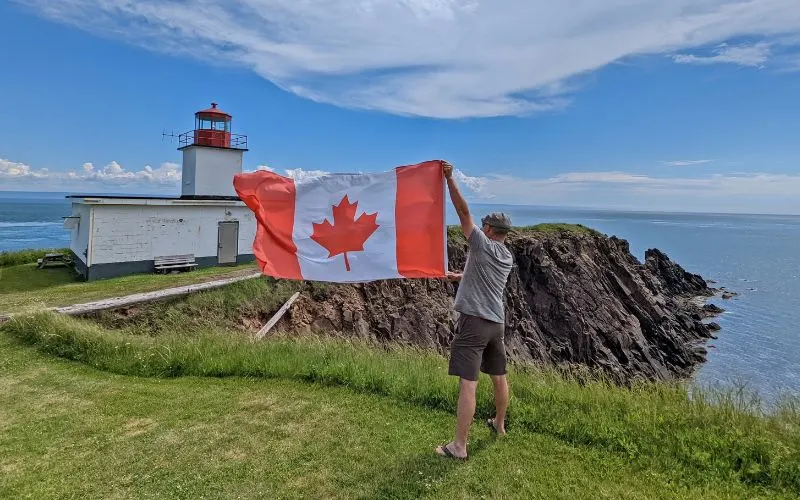

Arthur
Wednesday 20th of March 2024
Really useful article - thanks very much for it!
My partner and I have just moved to BC and will be travelling round till winter (but staying in BC), with no fixed address.
What would you recommend we do, stay on our UK licenses or use a friends address and convert to BC Licenses?
Gemma
Sunday 24th of March 2024
Hi Arthur,
You will get a significant discount after switching to BC licenses so I'd recommend that.
felix
Sunday 11th of February 2024
just wanna say what an amazing document this, my girlfriend and I are moving to canada soon, going to buy a AWD car in vancouver before heading to nelson. you answered alot of questions!
Gemma
Sunday 11th of February 2024
Hi Felix,
So glad you found this post helpful!
simon hantler
Thursday 2nd of November 2023
great article. im planning to buy a car for yearly ski trips in BC. renting for two months each time ($5k) is wearing thin so time to buy. im looking in cranbrook, nelson kelowna areas. sounds like my IDP willbe fine but ill need to reg and insure. if i buy from a yard theyll do this for me (i hope) but i pay max price for the car. any advice for an insurance broker?
Gemma
Monday 6th of November 2023
Hi Simon,
I don't have any particular recommendations for insurance brokers - they all sell the basic third party coverage from ICBC so that part is the same everywhere.
Erkki
Sunday 18th of June 2023
Hi. I want to visit Canada and USA and buy a new car from Canada. As I will take the car out of Canada, can I buy the car "tax-free" so to speak? And I have been looking for some broker to insure the car, but being a non-resident, it seems, that that too has its problems. So if anybody can offer some advice or pointers, where should I look, I would really appreciate that.
Gemma
Tuesday 27th of June 2023
Hi Erkki,
Great question but not one I think I can answer. I have published your comment though in case someone with personal experience can answer!
Yarde
Sunday 9th of April 2023
Nice article, however I was hoping to see more tips on price negotiation and how to avoid being ripped off when buying a vehicle (whether it be through a dealership or privately.)
Gemma
Monday 10th of April 2023
Hi Yarde,
A fair point! I decided to stick to Canada specific advice in this post.